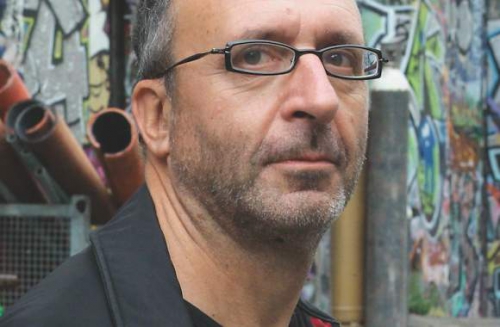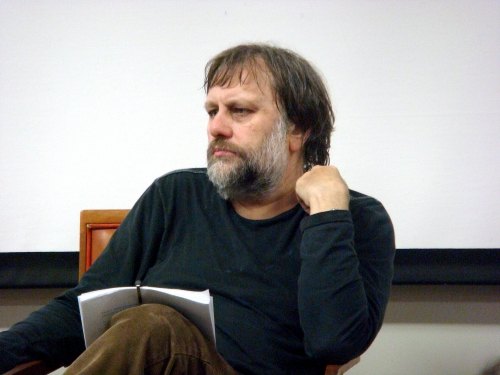By Claudio Grass
Global Gold & http://www.lewrockwell.com
If a person has no philosophical thoughts, certain questions will never cross his mind. As a young man, there were many issues and ideas that never concerned me as they do today. There is one question, however, which has intrigued me for the longest time, and it still fascinates me as intensely as it did back then: Does spirit precede matter or is it the other way around? In other words, does human consciousness create what we perceive as our reality and the physical existence or vice versa; does the pre-existing material world determine our sentience and shape our cognition? In essence, what really lies beneath the surface of this question is the following: is a man born as a conscious being with a free will and self-determination or not?
Do not be alarmed; this is not an article on political philosophy. But it is a fundamental existential issue that I found underpins many of the doubts that I have regarding the functioning of our society and our political culture. While I freely admit I am no philosopher or expert in the field, in this article I will try to explain why the answer we choose to this crucial question, which most people never consider, has an amazing impact on the way we think, the way we live and act and the way society behaves as a whole. By diving deeper into this debate, we uncover important insights that can help us understand how our Western society and its cultural identity have vastly degenerated and especially why family values have so dramatically deteriorated. A clearer understanding of the historical evolution of this age-old question and its far-reaching implications will provide valuable insights into the intellectual crisis of our Western societies and the strategic suppression of dissent and of independent thought and it will shed light on the origins on the intellectual bondage that we know today as Political Correctness.
The Kantian heritage and the intellectual shackles of Nonage
 I believe it makes sense to start our quest to settle this age-old question by looking at the works of Immanuel Kant (1724 – 1804), the German philosopher who is considered the father of modern philosophy. In 1784 he wrote the following about Enlightenment:
I believe it makes sense to start our quest to settle this age-old question by looking at the works of Immanuel Kant (1724 – 1804), the German philosopher who is considered the father of modern philosophy. In 1784 he wrote the following about Enlightenment:
“Enlightenment is man’s emergence from his self-imposed nonage. Nonage is the inability to use one’s own understanding without another’s guidance. This nonage is self-imposed if its cause lies not in lack of understanding but in indecision and lack of courage to use one’s own mind without another’s guidance. Dare to know! (Sapere aude.) “Have the courage to use your own understanding,” is, therefore, the motto of the Enlightenment.”
Today’s economic and political forces seem to be cognizant of the peril posed by a free-thinking citizenry. As our western culture faces an existential crisis and suffers attacks from multiple fronts, the political elite appears to be focused on enforcing its will at all costs. They are desperately trying to keep a multitude of threats at bay, and failing to do so, they are content with simply having the public accept their failure as a strategic victory: the immigration crisis, chronic economic instability, geopolitical conflicts with horrendous human costs, violations of personal liberties, they are all to be taken as facts of life; this is sold to us as the new normal. Therefore, their priority is to keep the body politic in check, to crush dissent and rebel-rousing. To do so, laws against specific actions are not enough. To “keep the peace”, one needs to have laws against thought itself. By re-defining right and wrong, controlling the narrative and limiting independent thought and free speech, the public, as a whole, remains strategically malleable and intellectually manageable.
Given the success of this strategy, and bearing in mind Kant’s definition of Enlightenment, it seems pertinent to raise the question: did we ever manage to evolve into mature and enlightened individuals or are we still trapped in our own self-imposed nonage? I believe the latter is the case; and to further clarify my view, there is no better man to quote than Kant himself:
“Laziness and cowardice are the reasons why such a large part of mankind gladly remains minors all their lives, long after nature has freed them from external guidance. They are the reasons why it is so easy for others to set themselves up as guardians. It is so comfortable to be a minor. If I have a book that thinks for me, a pastor who acts as my conscience, a physician who prescribes my diet, and so on–then I have no need to exert myself. I have no need to think if only I can pay; others will take care of that disagreeable business for me. Those guardians who have kindly taken our supervision upon themselves see to it that the overwhelming majority of mankind–among them the entire fair sex–should consider the step to maturity, not only as hard but as extremely dangerous. First, these guardians make their domestic cattle stupid and carefully prevent the docile creatures from taking a single step without the leading-strings to which they have fastened them. Then they show them the danger that would threaten them if they should try to walk by themselves. Now this danger is really not very great; after stumbling a few times they would, at last, learn to walk. However, examples of such failures intimidate and generally discourage all further attempts.”
The Frankfurt School and the origins of political correctness
What is becoming increasingly hard to deny, especially in Europe and the USA, is that we no longer have the absolute and inalienable right to free speech. Although we claim to be proud citizens of democratic societies that, in theory, respect and uphold individual freedoms, in practice, the definition of what constitutes free speech has grown so withered and so narrow, that it often makes a mockery of the very principle itself. More and more topics have been classified as “off limits”, the public expression of the “wrong” personal opinions and ideas has been criminalized and even academic or scientific research of certain fields has been suppressed. But symptoms of our socially enforced self-censorship are evident in everyday conversations as well: Is it not deeply unsettling that it is next to impossible to have a normal, temperate debate about the immigration crisis, which is an existential matter that will most likely shape the future of the European continent? The natural rights to one’s own independent thinking and to free speech have been heavily curtailed under the guise of what is now referred to as ‘political correctness’. Speaking one’s mind freely can have them branded as a pariah and a direct threat to society, but the repercussions do not end there: Self- censorship is also enforced through new laws implemented by our moral leaders, who feel that the power vested in them through their governmental offices extends to also placing limitations on what we can and cannot think.
250 years ago, Kant stressed the need for public debate as follows:
“It is very difficult for the individual to work himself out of the nonage which has become almost second nature to him. He has even grown to like it and is at first incapable of using his own understanding because he has never been permitted to exercise it. It is possible, however, for the public to enlighten itself. Indeed, if it is only granted freedom, enlightenment is almost inevitable. There will always be a few independent thinkers, even among the self-appointed guardians of the multitude. Once such men have thrown off the yoke of nonage, they will spread about them the spirit of a reasonable appreciation of man’s value and of his duty to think for himself. It is especially to be noted that the public which was earlier brought under the yoke by these men afterward forces these very guardians to remain in submission if it is so incited by some of its guardians who are themselves incapable of any enlightenment. That shows how pernicious it is to implant prejudices: they will eventually revenge themselves upon their authors or their authors’ descendants. Therefore, a public can achieve enlightenment only slowly. A revolution may bring about the end of a personal despotism or of avaricious tyrannical oppression, but never a true reform of modes of thought. New prejudices will serve, in place of the old, as guide lines for the unthinking multitude.”
In short, without the freedom to debate openly, the individual has not the means to escape his self-imposed nonage. Without the possibility to break free, and to enlighten ourselves, we remain powerless to question, to object to and to challenge the status quo. Like pieces on a chessboard, we have no say in our own fates and no control over the stratagems that we implicitly help to enforce. Silently complicit in devastating policies, in conflicts and in wars being fought in our name, we simply become bystanders and look on as our culture corrodes, our values degrade and our liberties are trampled upon. To understand how the modern man became complicit in his own intellectual subjugation, we have to go back and trace the roots of the crisis.

“Emancipation through indoctrination”
Free thought and free speech have always been intertwined and correlated. The demise of both has its origins in the years between 1930 and 1968 when a group of intellectuals and so-called philosophers came together to establish a school of thought that was essentially focused on destroying Western civilization and all that it stands for (including its economic system based on capitalism) through ‘emancipation’. Max Horkheimer, a Marxist philosopher, was one of the founding fathers of the Frankfurt School, which embodied modern Critical Theory and was to a great extent characterized as neo-Marxist. Horkheimer, along with Jürgen Habermas, Theodor W. Adorno, Herbert Marcuse and Erich Fromm, to name but a few formed the Frankfurt School and its Institute for Social Research, an intellectual think-tank, that shaped the cultural understanding of the West and Germany in particular. According to Horkheimer, the critical theory would serve “to liberate human beings from the circumstances that enslave them.” Accordingly, their main objective was to create the theoretical and ideological platform for a cultural revolution. This group of “philosophers” sought to, and to a great extent, succeeded in achieving their objective by focusing specifically on culture. It is a culture that forms the foundation that shapes peoples’ mindsets and political outlook by controlling the language and ideas through institutional channels, particularly education. In short, Critical Theory is the politicization of logic. Horkheimer stated that “logic is not irrespective of content,” by which he practically meant that an argument is logical if it aims to destroy Western civilization and it is illogical if it supports it. This is, of course, the cornerstone of “political correctness” and why the open and unrestrained debate is frowned upon as subversive and inflammatory. It breeds dissent and doubt, it encourages critical analysis and it prevents intellectual uniformity and group-think.
Critical Theory and the war on God
 The Frankfurt School claimed that its Critical Theory is the theory of truth. The occidental philosophy, from St. Thomas Aquinas to Kant, as well as Hegel, Fichte, Schelling, and Goethe, should, therefore, be summarily dismissed and replaced by their own dogmatic set of rules and guidelines for “thinking right”. Critical Theory in sociology and political philosophy went beyond interpretation and understanding of society, it sought to overcome and destroy all barriers that, in their view, entrapped society in systems of domination, oppression, and dependency.
The Frankfurt School claimed that its Critical Theory is the theory of truth. The occidental philosophy, from St. Thomas Aquinas to Kant, as well as Hegel, Fichte, Schelling, and Goethe, should, therefore, be summarily dismissed and replaced by their own dogmatic set of rules and guidelines for “thinking right”. Critical Theory in sociology and political philosophy went beyond interpretation and understanding of society, it sought to overcome and destroy all barriers that, in their view, entrapped society in systems of domination, oppression, and dependency.
A principal yet controversial argument concerns their animosity towards religion and spirituality. According to the Frankfurt School, Christianity is the institutional revival of pagan philosophy and God is mere fiction. Religion led people to project their suffering to a divine entity, it served as a distraction from the misery caused by capitalism and in its core lies nothing but pure imagination. As the theories of Darwinism and Freudianism challenged the status of religion, accordingly, Marxism and Neo-Marxism dispelled the unenlightened mythical image of the age-old institutionalized divinity: Not God, but Man is the highest entity. Since it is not my purpose to discuss theology, but to demonstrate the mindset of the members of this school of thought, once again, I will refer to a quote by Immanuel Kant, who wrote the following in Critique of Pure Reason:
“Human reason, in one sphere of its cognition, is called upon to consider questions, which it cannot evade, as they are presented by its own nature, but which it cannot answer, as they transcend every faculty of the mind.”
Kant was known as a fierce critic of the practice of religion, but he recognized that cognition and rationalization are indicative of the human mind and spirit, and are the means by which the individual arrives at the conclusion that there is a God. The significance of this argument lies in Kant’s belief in the free will and determination of the human mind to develop this process of rationalization in order to arrive at the conclusion that man is essentially good. In this context, God is more of a metaphor for morality and this plays a decisive role in the fundamental spirit versus matter question: Man’s mind and spirit precedes matter. Essentially, Kant reconciled these two concepts in a way that highlights human consciousness and self- determination.
The Frankfurt School positioned its ideology at the opposite end of the spectrum. It professed that man is limited in his existence as a mammal and as a product of nature that is driven by basic needs. There is no room for free will, no capacity for critical judgment or ability to distinguish right from wrong, no awareness, and no rationalization. This position has its roots in their Marxist background, which argues that man is a product of society: his mind and spirit are determined and shaped by the material world. Because of this vulnerability to external factors, the human mind is thought of as frail and manipulable and therefore man cannot be held accountable for his own decisions. This idea served as the basis for the “de-criminalization of crime” thesis of the Frankfurt School. As per Habermas, because man is a product of society, it is inevitable that he adaptively yields to his criminal tendencies, since he is raised under the yoke of the structural violence of a criminal capitalist system.
The Frankfurt School believed that by stripping humanity of spirituality and by destroying the material surroundings created by the capitalist system and its structure, man will live free, without the feeling of responsibility and without the burden of conscience. They promised freedom, without free will, they envisioned emancipation, through intellectual assimilation and they guaranteed fairness, without justice.
The strategic importance of public education
According to the Frankfurt School, the system’s malfunction starts with the family. The family is the first and primary moral entity that we encounter. This entity raises children in an authoritarian manner that creates submissive, obedient and dependent adults. In other words, it is the family that primes and programs us for fascism. Thus, by discrediting and destroying the family as a concept, one can nip capitalism and fascism in the bud. With this antagonistic attitude towards the family unit in society, combined with their ideological crusade against spirituality, the Frankfurt philosophers needed to put forward an alternative, to replace the old ways with their own roadmap for the future. In their view, the answer was simply to reprogram and reengineer society so that everyone behaves as is expected by others and so that human behavior becomes an act of reciprocity. This alone would be the universal code of ethics governing their utopia. To instill and to enforce this code in society, they proposed the use of institutions, and most importantly, education. Commandeering these institutional channels would be the most efficient way to impose and to promote their ethics, with education providing the key to assured compliance, weeding out dissent and any potential for future independent thinking by the individual.
The repercussions of this strategy are obvious in today’s society. Public education has conditioned us since childhood not to question the government and its collectivist policies. Maybe you remember one of our latest articles about the origins of the public education system, in which we introduced you to Wilhelm Wundt, the father of experimental psychology (and his proponents John Dewey and Edward Thorndike in the U.S.), the scientist who shaped today’s state education approach. He based his methodology on the following assumption: “Man is devoid of spirit and self-determinism”. He then set out to prove that “man is the summation of his experience, of the stimuli which intrude upon his consciousness and unconsciousness.” The great H. L. Mencken wrote in 1924 that the aim of public education is not: “ […] to fill the young of the species with knowledge and awaken their intelligence… Nothing could be further from the truth. The aim… is simply to reduce as many individuals as possible to the same safe level, to breed and train a standardized citizenry, to put down dissent and originality. That is its aim in the United States… and that is its aim everywhere else.”

The rise of Cultural Marxism
The Frankfurt School developed the dogma that “freedom and justice” are dialectic terms, meaning that they stand in opposition to each other, in a zero-sum game, where “more freedom equals less justice” will be the consequence and “more justice equals less freedom” is the outcome. Based on this dialectic, freedom stood as the thesis, and justice reflected the anti-thesis.
This rather interesting dialectic approach was adopted from the ideas and works of Georg Wilhelm Friedrich Hegel. The Frankfurt School, however, twisted the core of the concept and denatured its consequential logicality. In short, the main difference between Hegel and Horkheimer’s dialectic approach lies in the conclusion: Hegel, an idealist, believed like Kant that spirit creates matter, while for Horkheimer, a disciple of Karl Marx and his theory of materialism, the opposite was the case. Marx postulated that the world, the objective reality, can be explained by its material existence and its development and not from the realization of a divine absolute idea or as a result of rational human thought, as adopted in idealism. Therefore, putting limits on the material world, placing external rules and guidelines on the environment within which individuals live, think and operate, should, in their view, suffice to shape their cognitive experience and confine their spirit to the “desired” parameters.
I believe this is the key point that links the Frankfurt school of thought to what we know today as “political correctness”. At its core, we find this familiar false belief that less freedom guarantees more justice, and therefore more security. This mantra is regurgitated through institutional and political messaging, instilled in social values and planted in the minds of the younger generation and future voters, though the educational channel, just like the Frankfurt School intended. Instead of creating the platform to encourage individual human development, by reasoning, raising questions and stimulating dialogue, the institutional system works as an assembly line, from cradle to grave, and it successfully standardizes individuals and primes them to submit to the status quo, to accept and not to question. This is the logic of Critical Theory and the core element of “political correctness”. It is a vain and doomed attempt to control the inherent entropy of human ideas and independent thinking, to force the flux of our intertwined and unique experiences to an unnatural stasis and ultimately, to break Man’s spirit and to bring his mind to heel. .
Now you can maybe understand what Tom DiLorenzo meant in one of our latest interviews about “cultural Marxism” when he said: “They largely abandoned the old “class struggle” rhetoric involving the capitalist and worker “classes” and replaced them with an oppressor and an oppressed class. The oppressed include women, minorities, LGBT, and several other mascot categories. The oppressor class consists of white heterosexual males who are not ideological Marxists like them.” When the members of the Frankfurt School were forced to leave Germany during Nazi rule, they moved to the USA, near Hollywood, and they established strong ties with Columbia University and Harvard. This is how they spread their influence in the United States and aside from Hollywood, they also turned the academic elite at most universities into reservoirs of “cultural Marxism”. Here in Europe, some of the most prominent names in politics today were among the 1968 rebel students who were mentored by the first generations of the Frankfurt School. These include former German Chancellor Gerhard Schröder and his Minister of Defense Joschka Fischer, current Vice-President of the German Bundestag, Ulla Schmidt, and last but not least Chancellor Angela Merkel. On the anniversary of “60 years Christian-Democratic-Union (CDU)” on June 16th, 2005 in Berlin, she explained how many changes in society which were triggered in 1968 have shaped the old German Republic and continue to influence the CDU to this day. As she put it: “We don’t want to return to the family concept, to the 1950s image of a woman and we don’t want to return to the sociopolitical frame of that time. We as women must march through the institutions und take our place in the key power positions in the leadership of this country”.
My understanding of cultural Marxism is that it has nothing to do with freedom, or with cultural enlightenment and social progress. Instead, as Horkheimer himself put it, it is all about the creation of identical individuals who do not come together and exchange ideas, as they operate like mindless machines. The Frankfurt School and its followers have therefore clearly proved to be the enemies of freedom and the conscious human mind.
In conclusion, let me yield the closing words to Immanuel Kant, who wrote, “ A large degree of civic freedom appears to be of advantage to the intellectual freedom of the people, yet at the same time it establishes insurmountable barriers. A lesser degree of civic freedom, however, creates room to let that free spirit expand to the limits of its capacity. Nature, then, has carefully cultivated the seed within the hard core–namely the urge for and the vocation of free thought. And this free thought gradually reacts back on the modes of thought of the people, and men become more and more capable of acting in freedom. At last free thought acts even on the fundamentals of government and the state finds it agreeable to treat a man, who is now more than a machine, in accord with his dignity.”
This article appeared in the latest Global Gold Outlook Report.
Reprinted with permission from Global Gold.
The Best of Claudio Grass






 del.icio.us
del.icio.us
 Digg
Digg

 I believe it makes sense to start our quest to settle this age-old question by looking at the works of Immanuel Kant (1724 – 1804), the German philosopher who is considered the father of modern philosophy. In 1784 he wrote the following about Enlightenment:
I believe it makes sense to start our quest to settle this age-old question by looking at the works of Immanuel Kant (1724 – 1804), the German philosopher who is considered the father of modern philosophy. In 1784 he wrote the following about Enlightenment:
 The Frankfurt School claimed that its Critical Theory is the theory of truth. The occidental philosophy, from St. Thomas Aquinas to Kant, as well as Hegel, Fichte, Schelling, and Goethe, should, therefore, be summarily dismissed and replaced by their own dogmatic set of rules and guidelines for “thinking right”. Critical Theory in sociology and political philosophy went beyond interpretation and understanding of society, it sought to overcome and destroy all barriers that, in their view, entrapped society in systems of domination, oppression, and dependency.
The Frankfurt School claimed that its Critical Theory is the theory of truth. The occidental philosophy, from St. Thomas Aquinas to Kant, as well as Hegel, Fichte, Schelling, and Goethe, should, therefore, be summarily dismissed and replaced by their own dogmatic set of rules and guidelines for “thinking right”. Critical Theory in sociology and political philosophy went beyond interpretation and understanding of society, it sought to overcome and destroy all barriers that, in their view, entrapped society in systems of domination, oppression, and dependency.







 It is a common myth on the Right, that while the rightists are divided, the leftists have clearly defined goals and are struggling together to achieve them. While I do agree that the Left has more common goals (privileges for sexual, religious, and ethnic minorities, the destruction of ethnically homogeneous countries and nations, etc.) I do not agree that the Left is united in realizing these aims. When it comes to issues of the hierarchy of these goals, the means of achieving them, or leadership, they are just as divided as the Right, or even more.
It is a common myth on the Right, that while the rightists are divided, the leftists have clearly defined goals and are struggling together to achieve them. While I do agree that the Left has more common goals (privileges for sexual, religious, and ethnic minorities, the destruction of ethnically homogeneous countries and nations, etc.) I do not agree that the Left is united in realizing these aims. When it comes to issues of the hierarchy of these goals, the means of achieving them, or leadership, they are just as divided as the Right, or even more.

 Les Français étaient si fiers autrefois de «descendre des Gaulois»- même si c'était une filiation mythique - qu'ils ont eu la prétention extravagante d'expliquer aux Africains colonisés qu'ils en descendaient aussi! Aujourd'hui c'est l'inverse, le mot de Gaulois est devenu suspect pour ceux qui se pâment d'admiration pour tous les peuples premiers du monde, depuis les Toubous aux Inuit en passant par les Aborigènes d'Australie! Cette dévaluation est emblématique de la haine que certains portent aux origines et à l'histoire de leur pays. Une dénégation dont témoigne le discours fallacieux sur la France «pays d'immigration», laquelle a débuté, au milieu du XIXème siècle, dans un pays qui n'a cessé d'être occupé depuis le néolithique. L'historien Jean-Louis Brunaux rappelle que la France gauloise, à l'époque de Jules César, était peuplée par près de 9 millions d'habitants, voire plus! Mais les élites de ce pays ont dénié aux Français le droit d'avoir des origines, comme tous les peuples du monde, car qui dit origine dit identité, notion oiseuse ou dangereuse aux yeux des apologues de l'Universel. La France, pays de Vercingétorix et de Gambetta, mais aussi de Robespierre et de Pétain, n'était plus assez bien pour elles.
Les Français étaient si fiers autrefois de «descendre des Gaulois»- même si c'était une filiation mythique - qu'ils ont eu la prétention extravagante d'expliquer aux Africains colonisés qu'ils en descendaient aussi! Aujourd'hui c'est l'inverse, le mot de Gaulois est devenu suspect pour ceux qui se pâment d'admiration pour tous les peuples premiers du monde, depuis les Toubous aux Inuit en passant par les Aborigènes d'Australie! Cette dévaluation est emblématique de la haine que certains portent aux origines et à l'histoire de leur pays. Une dénégation dont témoigne le discours fallacieux sur la France «pays d'immigration», laquelle a débuté, au milieu du XIXème siècle, dans un pays qui n'a cessé d'être occupé depuis le néolithique. L'historien Jean-Louis Brunaux rappelle que la France gauloise, à l'époque de Jules César, était peuplée par près de 9 millions d'habitants, voire plus! Mais les élites de ce pays ont dénié aux Français le droit d'avoir des origines, comme tous les peuples du monde, car qui dit origine dit identité, notion oiseuse ou dangereuse aux yeux des apologues de l'Universel. La France, pays de Vercingétorix et de Gambetta, mais aussi de Robespierre et de Pétain, n'était plus assez bien pour elles.
 The more one identifies with the primitive, the more one rejects the elaboration and refinement of advanced civilization. Germans are among the most civilized, and I don’t measure that by bombastic monuments, but by the subtlest civilized gestures. Outside the entrance of a shopping mall toilet, I noticed management had left bowls of water and dog food, and inside each bathroom stall at my university, there is a toilet bowl scrubber to use if necessary. Germans also rarely jaywalk or litter. Of course, they have also produced guys with names like Bach, Beckmann and Sebald. I work on Beethoven Street. Hey, rambling schmuck, and what about dudes with names like Mengele, Heydrich and, uh, Hitler?! I’m talking about civilization’s forms, not its moral contents. Except when they go berserk, Germans are among the most domesticated. In this, they resemble the Japanese. Both have been superbly toilet trained.
The more one identifies with the primitive, the more one rejects the elaboration and refinement of advanced civilization. Germans are among the most civilized, and I don’t measure that by bombastic monuments, but by the subtlest civilized gestures. Outside the entrance of a shopping mall toilet, I noticed management had left bowls of water and dog food, and inside each bathroom stall at my university, there is a toilet bowl scrubber to use if necessary. Germans also rarely jaywalk or litter. Of course, they have also produced guys with names like Bach, Beckmann and Sebald. I work on Beethoven Street. Hey, rambling schmuck, and what about dudes with names like Mengele, Heydrich and, uh, Hitler?! I’m talking about civilization’s forms, not its moral contents. Except when they go berserk, Germans are among the most domesticated. In this, they resemble the Japanese. Both have been superbly toilet trained. One of the earliest German hip hop albums was called “Krauts with Attitude,” a clear nod to N.W.A., “Niggas with Attitude.” N.W.A. has become very mainstream, of course, as attested by the 2015 release of Straight out of Compton. Around Leipzig, I now see stickers and posters of seven masked German militants, under the heading “STRAIGHT OUT OF CONNEWITZ.”
One of the earliest German hip hop albums was called “Krauts with Attitude,” a clear nod to N.W.A., “Niggas with Attitude.” N.W.A. has become very mainstream, of course, as attested by the 2015 release of Straight out of Compton. Around Leipzig, I now see stickers and posters of seven masked German militants, under the heading “STRAIGHT OUT OF CONNEWITZ.”


 Going back to the early 1990s, there emerged a considerable literature and a political movement concerned with Civil Society - which was the layer of organized social life between the government and the family: churches, professions and guilds, charities and clubs and the like.
Going back to the early 1990s, there emerged a considerable literature and a political movement concerned with Civil Society - which was the layer of organized social life between the government and the family: churches, professions and guilds, charities and clubs and the like.


 Ainsi, au fil des ans, Jean Sévillia, Alain Finkielkraut ou Marcel Gauchet ont été accusés successivement de pratiquer la contrefaçon intellectuelle. Le premier ne serait pas vraiment historien, les deux autres certainement pas philosophes. On a aussi fait le coup, au fil du temps à Pierre Manent, accusé d'avoir une connaissance sommaire des œuvres qu'il commente. Si de telles attaques n'étaient pas aussi mesquines, on dirait aisément qu'elles sont hilarantes.
Ainsi, au fil des ans, Jean Sévillia, Alain Finkielkraut ou Marcel Gauchet ont été accusés successivement de pratiquer la contrefaçon intellectuelle. Le premier ne serait pas vraiment historien, les deux autres certainement pas philosophes. On a aussi fait le coup, au fil du temps à Pierre Manent, accusé d'avoir une connaissance sommaire des œuvres qu'il commente. Si de telles attaques n'étaient pas aussi mesquines, on dirait aisément qu'elles sont hilarantes. 

 Les activistes islamistes violents, boostés par les guerres américaines en Afghanistan, en Irak et les conséquences du « Printemps arabe » qui ont déstabilisé la Libye, la Syrie, la moitié de l’Afrique marquent des points.
Les activistes islamistes violents, boostés par les guerres américaines en Afghanistan, en Irak et les conséquences du « Printemps arabe » qui ont déstabilisé la Libye, la Syrie, la moitié de l’Afrique marquent des points. 






